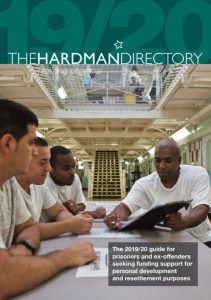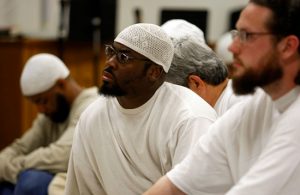Black, Asian and Minority Ethnic disproportionality in the Criminal Justice System in England and Wales
David Lammy MP is tasked by Number 10 and the Prime Minister to undertake a review into racial bias in the Criminal Justice System, looking in depth at the issue of over-representation and poorer outcomes for people from black, Asian and minority ethnic (BAME) communities. He has written an open letter to the Prime Minister to present the interim findings of his review.
On 16th November the Ministry of Justice and the Lammy Review published its first analysis of disproportional outcomes for BAME people in the justice system, focussing on young people and adults as well as men and women. Two reports were published, one is a review of ethnic disproportionality across the system and the other is a review of those being sentenced in the Crown Court in 2015; both have been published by Ministry of Justice Analytical Services.
The results show a justice system that is failing young, adult, male and female people from BAME communities at almost all stages. This is because they are treated differently and drawn into the justice system unnecessarily, sent to prison more frequently, have a worse experience in prison, and have poorer outcomes when released. These reports provide useful evidence to tackle the problem of discrimination in our justice system, but we must use it to move forward towards solutions. The Young Review already has concrete recommendations to change this situation, and we will work with David Lammy MP and his team to tackle it head on.
The Young Review, chaired by Baroness Lola Young and facilitated by BTEG and Clinks will work alongside its expert Advisory Group to change policy and practice that can make a real change. We have provided evidence to David Lammy’s team on what we think needs to happen and will continue to work alongside them. Baroness Lola Young has accepted a role on the Lammy Review’s advisory group to assist them.
What the Lammy review is saying
Arrest
The report found that black young and adult men being 3 times more likely to be arrested than white men. Mixed ethnic men, and both black and mixed ethnic women were 2 times more likely to be arrested than their white counterparts. This unnecessarily draws more BAME people into the Criminal Justice System.
Sentencing
Subsequently almost all BAME people are more frequently convicted at Magistrates Courts. All BAME people (young, adult, male and female) were more likely to be committed to trial at the Crown court; in some instances 60% more likely.
At the Crown Court, Asian or Black people were 50-55% more likely to be imprisoned than white people, and Chinese people we 81% more to be sent to prison.
The report delves into specific offences, showing that BAME people are disproportionately treated at many stages of the Criminal Justice System in relation to robbery, sexual offences, and drug offences. In many instances disproportionality in the prison population can be traced back to disproportionate arrest rates and disproportionate custodial sentencing, especially in the Crown Court.
Prison
In Britain black people are four times more likely than white people to be in prison. When those people arrive in the prison system it is not treating them equally or fairly. Black and Asian men were four times more likely to be held in the high security estate.
The behaviour of BAME prisoners is heavily scrutinised and mixed ethnic men were 50% more likely to have adjudications brought against them.
Black men are significantly less likely to receive Release on Temporary License (ROTL) whilst in Category C prisons.
Re-offending
Re-offending rates for black youth and adults are higher than their white counterparts. Black young males were about 15% more likely to re-offend, and black adult males were about 7% more likely to do so. This raises concerns about the effectiveness and/or accessibility of rehabilitative support for young and adult black men.
What the Lammy Review will do next
- Explore the better use of data (and where it is misused) to scrutinise the system
- Investigate other forms of oversight and accountability to provide checks and balances
- Focus on how best to build trust in our justice system among minority communities
- Look more closely at a number of vulnerable groups, including children in care, and individuals with learning difficulties or those with mental health issues
- Consider the better involvement of local communities, faith groups, the voluntary sector, family members and, people with direct experience of the justice system
SOURCE: http://www.bteg.co.uk/content/black-asian-and-minority-ethnic-disproportionality-criminal-justice-system-england-and-wales





